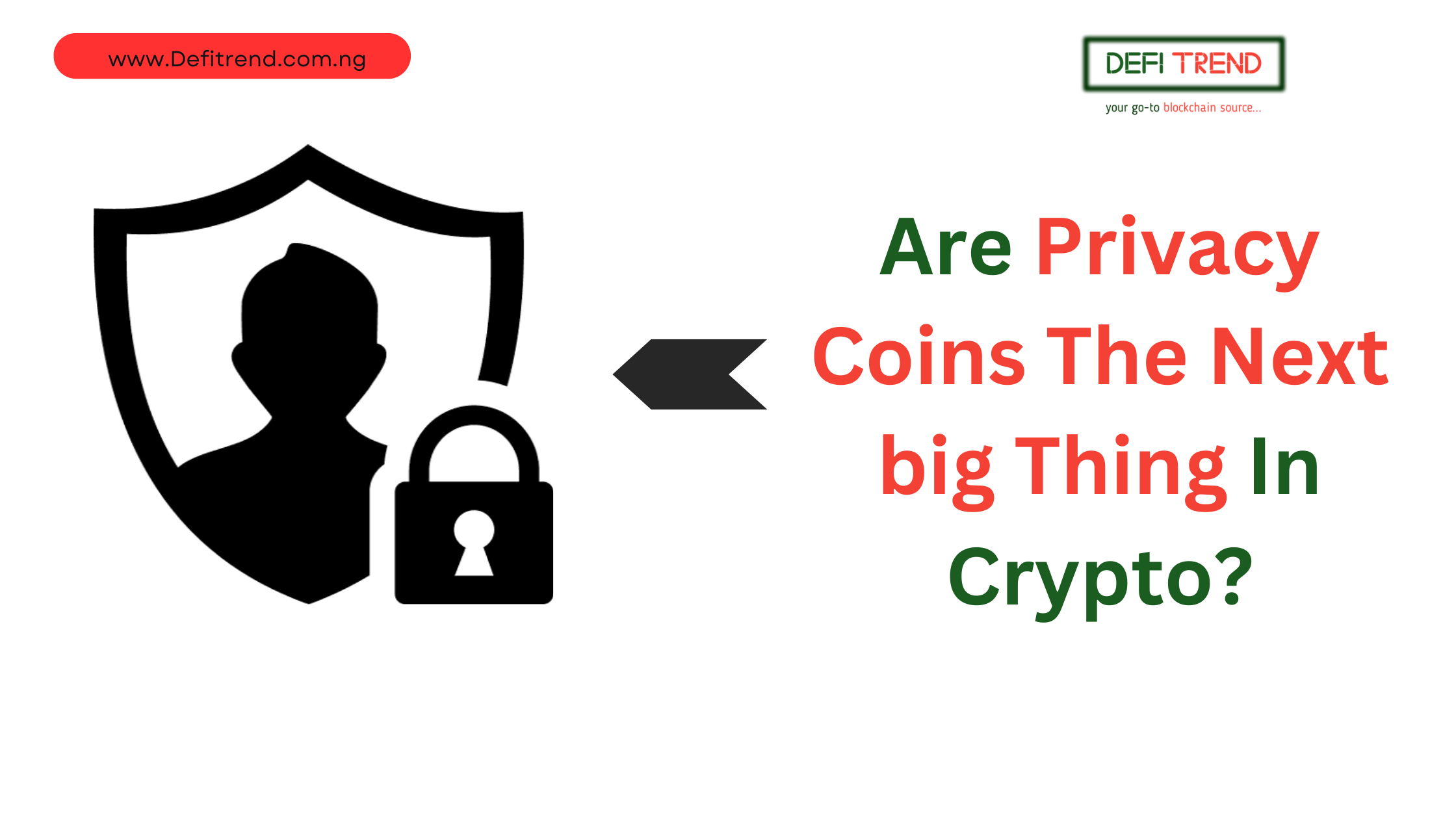Are you concerned about the privacy of your online transactions? Have you ever wondered how your financial data is being used? If so, you need to know about privacy coins. These cutting-edge cryptocurrencies offer a higher level of anonymity compared to traditional digital currencies. Let’s uncover the secrets behind how they work.
How Do Privacy Coins Work?
Privacy coins are cryptocurrencies designed to keep user transactions secret. Unlike regular cryptocurrencies like Bitcoin, where transaction details are public, privacy coins use special technology to hide information.
These coins use methods like:
- Stealth addresses: Each transaction gets a unique address, making it harder to link to a specific user.
- Ring signatures: This mixes up multiple possible senders, making it difficult to identify the real one.
- Zero-knowledge proofs: These verify transactions without revealing sensitive details.
Overall, privacy coins aim to make cryptocurrency transactions more like cash transactions, where it’s hard to trace who spent what.
Is TON the Next Crypto Giant? Bitget Bets Big!
What Is The Use Of Privacy Coins?
Privacy coins have several important uses, which include the following:
- Protecting user privacy: They hide who sends and receives money, keeping financial information secret.
- Increasing security: By making it harder to track money, they protect users from theft or blackmail.
- Enabling confidential business: Companies can use them for secret deals without revealing details.
- Supporting freedom: In countries with strict governments, they help people protect their money and privacy.
- Blocking unwanted tracking: Users can stop companies from following their spending habits.
Technical mechanisms:
- Mixing services (optional for some privacy coins): Certain privacy-focused services anonymize transactions by combining them with others, making it extremely difficult to trace the origin or destination of funds. Imagine you want to send money to a friend anonymously. You could use a mixing service to bundle your transaction with several others. When the transactions are received, they are all mixed up, making it impossible to track which funds came from you.
Limitations of privacy coins:
- Potential for illegal activity: While privacy coins offer legitimate uses, their anonymity can also facilitate illegal transactions, making them attractive for criminal activity. For instance, privacy coins could be used to purchase illegal goods or services on the dark web.
- Regulatory challenges: Governments are increasingly scrutinizing privacy coins due to concerns about money laundering and tax evasion. This is because privacy coins can make it difficult for authorities to track the flow of funds. As a result, governments may introduce stricter regulations on privacy coins in the future.
What Is The Best Privacy Coin?
Monero (XMR) has established itself as the gold standard in privacy-centric cryptocurrencies. Its intricate blend of cryptographic techniques ensures a level of anonymity and untraceability unmatched by its competitors. Introduced in 2014, Monero has consistently evolved to stay ahead of privacy challenges.
Key Privacy Features:
- Ring Signatures: This sophisticated mechanism obscures the sender’s identity by creating a group of potential signers. When a transaction is broadcast, Monero includes the public keys of several users, making it computationally infeasible to determine the actual sender.
- Stealth Addresses: Unlike traditional cryptocurrencies that use static public addresses, Monero employs one-time, unique addresses for each transaction. This prevents linking incoming funds to a specific wallet, safeguarding user privacy.
- Ring Confidential Transactions (RingCT): Going beyond identity protection, RingCT conceals the transaction amount. By using advanced cryptographic proofs, Monero verifies the transaction without revealing the transferred value, adding another layer of privacy
Comparison With Other Privacy Coins
While Zcash (ZEC) offers optional privacy through zk-SNARKs, it doesn’t provide the same level of default anonymity as Monero. Users must actively choose to shield their transactions, a process that might not be intuitive for everyone. Other privacy-focused coins like Dash and Horizen have made strides in privacy, but Monero’s comprehensive approach and consistent development have solidified its position as the leading choice for privacy-conscious users.
5 Reasons Why Your Pi KYC Verification Won’t Be Approved Before the Deadline
Thus, monero’s unwavering commitment to privacy, coupled with its robust technological foundation, has made it the preferred cryptocurrency for those seeking to protect their financial information. Its continuous evolution in response to emerging threats underscores its status as a pioneer in the privacy coin space.
Are Privacy Coins A Good Investment?
Privacy coins like Monero (XMR) and Zcash (ZEC) offer benefits achieved through techniques like ring signatures and zero-knowledge proofs compared to traditional cryptocurrencies. This feature appeals to people who value privacy in their financial dealings, such as online purchases or sending money to friends and family.
Potential Benefits
- Confidentiality: Privacy coins can protect user identity and transaction details.
- Independence: They can be used without government or financial institution interference.
- Potential Growth: Increased interest in digital privacy might boost their value
Potential Risks
- Regulatory Challenges: Government rules around privacy coins include restrictions on trading or exchange listings due to concerns about money laundering or financing terrorism. This can limit their availability.
- Market Fluctuations: Privacy coin prices can change rapidly, which is risky for investors.
- Negative Image: Some people associate privacy coins with illegal actions, which can affect their potential, hindering wider adoption and investment.
- Investing in privacy coins involves careful consideration. Understanding the benefits and risks is essential before making a decision.
Here’s a brief explanation of some key terms:
- Ring signatures: are a cryptographic technique that makes it difficult to identify the source of a transaction. In a ring signature, a group of users’ public keys are combined to create a signature. This makes it impossible to tell which key in the group signed the transaction.
- Zero-knowledge proofs: are a cryptographic method that allows one party to prove to another party that they possess certain information without revealing the information itself. For example, a zero-knowledge proof could be used to prove that you have enough funds to make a transaction without revealing your account balance.
It’s important to note that privacy coins are a relatively new technology, and their long-term viability remains uncertain. Regulatory frameworks are still evolving, and technological advancements could potentially compromise their anonymity features.
What Is The Difference Between Privacy Coins And Bitcoin?

Absolutely. Here’s a table summarizing the key differences between Bitcoin and privacy coins:
| Feature | Bitcoin | Privacy Coins |
|---|---|---|
| Transparency | Public blockchain; all transactions are recorded and visible | Transactions are obfuscated using cryptographic techniques |
| Anonymity | Pseudonymous; transactions can be traced if a Bitcoin address is linked to an identity | Anonymous by default; transaction details are hidden |
| Transaction details | Visible on the blockchain | Hidden using techniques like ring signatures and stealth addresses |
| Regulatory scrutiny | Less strict due to transparency | More strict due to potential for illicit activities |
Bitcoin offers greater transparency, making it easier to track transactions and comply with regulations. However, this transparency comes at the cost of user privacy. Privacy coins, on the other hand, are designed to protect user privacy by obscuring transaction details. However, this can make them more susceptible to use in illegal activities, and they often face greater regulatory scrutiny.
Should You Invest in MYRO Crypto? Don’t Without Reading This!
Ultimately, the choice between Bitcoin and a privacy coin depends on your individual needs and priorities. If you prioritize transparency and regulatory compliance, Bitcoin may be a better choice. If you prioritize privacy, a privacy coin may be a better option. But be aware of the potential regulatory risks associated with privacy coins.
What are privacy coins, and why are they used?
Privacy coins are cryptocurrencies designed to enhance user anonymity and transaction confidentiality. Unlike Bitcoin, which operates on a public blockchain, privacy coins employ advanced cryptographic techniques to obscure transaction details, making it difficult to trace the sender, recipient, and transaction amount. They are used by individuals who prioritize financial privacy and seek to protect their personal information from being exposed through blockchain analysis.
Are privacy coins legal?
The legality of privacy coins varies by jurisdiction. While some countries have outright banned them, others have taken a more permissive approach. It’s essential to research the specific laws and regulations in your country before investing in or using privacy coins. Many privacy coin projects are focused on compliance and transparency to address regulatory concerns.
What are the risks of investing in privacy coins?
Investing in privacy coins carries risks, including:
Market volatility: Like other cryptocurrencies, privacy coin prices can fluctuate significantly.
Regulatory uncertainty: The regulatory landscape for privacy coins is constantly evolving, and changes in regulations can impact the value and usability of these coins.
Reputational risk: Privacy coins have been associated with illicit activities, which can negatively impact their reputation and adoption.
Technical risks: The complex cryptographic algorithms used by privacy coins can introduce vulnerabilities that could be exploited by hackers.


